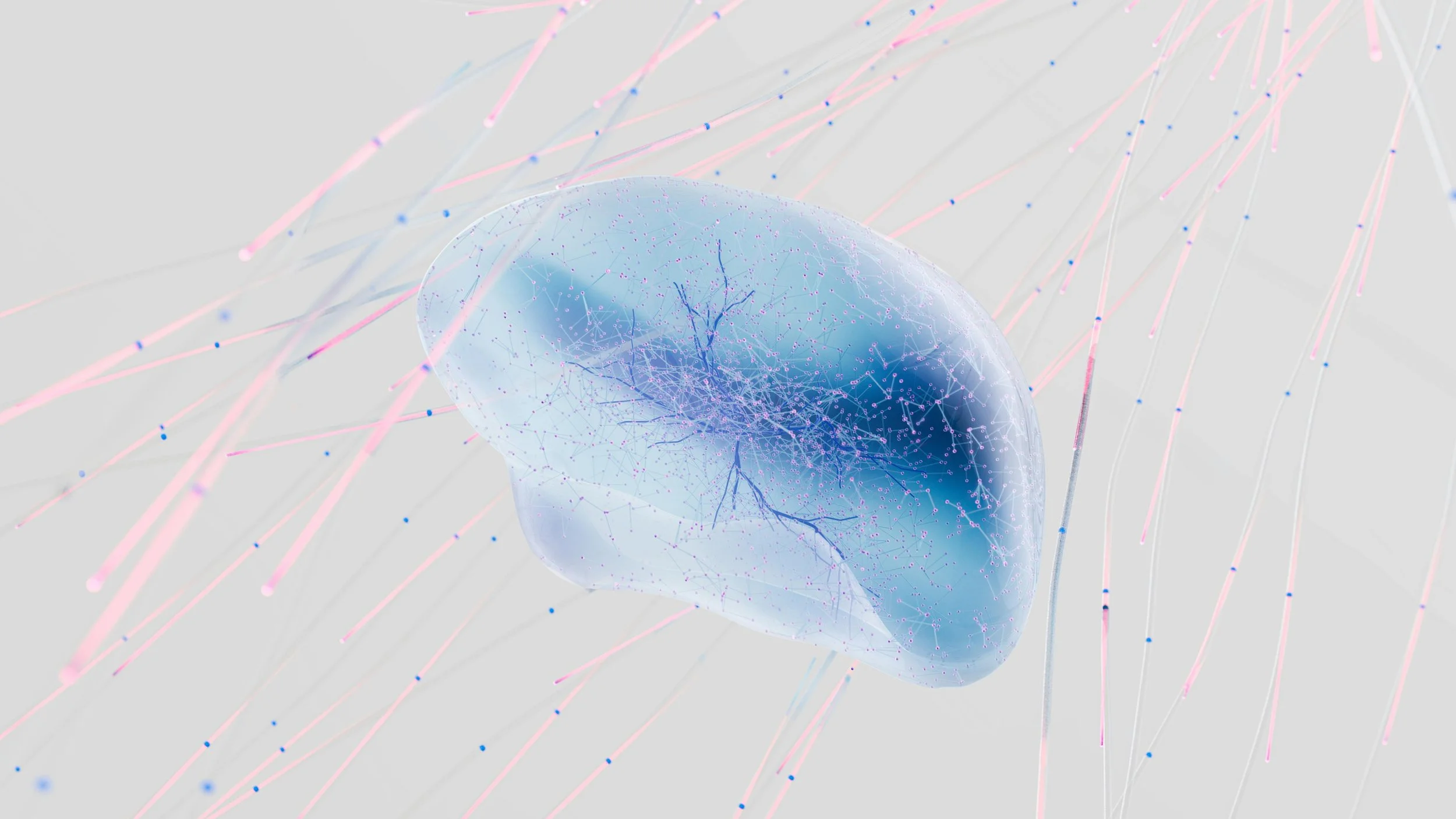Best Colleges for Artificial Intelligence (AI) Majors
From abstract patterns to real-world impact: where to study AI in college.
Artificial intelligence (AI) tools are being widely applied in nearly every aspect of our modern world. Yet, very few colleges and universities offer a formal AI major or degree. Indeed, according to the National Center for Education Statistics, only about a dozen US institutions currently offer a formal major in artificial intelligence. These programs are detailed below, but first let’s address some common questions about AI.
(Still deciding whether computer science is the right major? You might also like our article Is a Computer Science Degree Still Worth It in 2025?.)
What You’ll Learn In This Article
By the end of this article, you’ll know:
What AI is and why it matters for students today
The colleges currently offering formal AI majors
How AI compares to CS and other STEM majors (and how to choose)
What Is AI?
Artificial intelligence (AI) is a field of study that uses technology to create machines that can perform tasks that typically require human intelligence. AI uses math and logic to simulate human reasoning and decision-making. AI systems learn by identifying patterns and relationships in large amounts of data, often using algorithms to guide their analysis and decision-making.
What Kind Of Jobs Can You Get In AI? Is It A Growing Field?
There are many career opportunities in a wide range of applications and domains. Become a big data analyst, scientist or engineer, user experience (UX) designer or developer, researcher, AI engineer (machine learning, software, robotics, computer vision, natural language processing), business intelligence developer, AI ethicist, prompt engineer, AI product manager, and more! Work in exciting domains of financial services, healthcare, technology, media, marketing, government and military, national security, IoT-enabled systems, agriculture, gaming, and retail.
Artificial intelligence (AI) is a rapidly growing field, with high demand for skilled professionals due to its increasing adoption across industries and the rapid advancements in AI technology.
We are uniquely qualified—engineer, CS professor, top university engineering dean—to guide your child.
What Do Students Study When They Major In AI?
Typically, an AI degree includes:
Foundational math courses such as calculus, probability and statistics, linear algebra, and discrete math;
Foundational computing concepts, including introduction to programming, data structures, algorithm design, and programming languages;
Advanced computing concepts like robotics, machine learning, signals and systems, big data, optimization and control, symbolic computation, computer graphics, human-computer interaction, decision-making, and vision, perception, and language processing; and
Related electives from the disciplines of ethics, social responsibility, cognitive science, linguistics, psychology, and philosophy.
What Are Some Focus Areas Within An AI Degree?
Students may be asked to focus their studies within the curriculum. Some examples of possible focus areas include:
Robotics
Design, construct, and program physical machines capable of performing tasks autonomously or semi-autonomously.
Computer vision
Enable computers to interpret and understand visual information from the real world.
Language processing
Enable computers to understand human language as it's spoken and written.
Machine learning
Develop algorithms which allow computers to learn from data and improve performance over time without explicit programming.
Deep learning
Subset of machine learning which uses artificial neural networks with multiple layers to learn intricate patterns in large data sets.
Data and society, including ethics
Study of the societal impacts and ethical considerations surrounding the collection, analysis, and application of AI and data-driven technologies.
Cognitive computing
Develop systems that mimic human thought processes, such as perception, reasoning, and decision-making.
Neural networks
Work with computational models inspired by the structure and function of the human brain, utilized in various AI applications for pattern recognition and decision-making.
Specialized domains such as healthcare, education, or transportation
Develop and apply AI techniques tailored to specific industries or fields, such as healthcare (medical diagnosis), education (personalized learning), or transportation (autonomous vehicles).
Hardware
While most AI programs focus on software, some universities offer AI hardware specializations within their electrical and computer engineering or computer science programs, where students learn to design the advanced chips and computing systems that power AI.
Quick Fact
Only about a dozen U.S. colleges currently offer a formal AI major — but many CS programs let you specialize in AI through tracks or concentrations.
Where Can You Get A Degree In AI?
Bentley University - Artificial Intelligence for Innovation BS degree
This innovative degree combines AI with business. It includes critical reflection on AI’s ethical, social, and societal implications and encompasses computer programming/technology, math and data, human aspects (humanities and social sciences), and business.
Carnegie Mellon University (CMU) - Bachelor of Science degree in Artificial Intelligence through the School of Computer Science
The curriculum includes coursework in computer science (CS), math, statistics, computational modeling, machine learning, symbolic computation, ethics and social responsibility. Students will have the computer science skills CMU students are famous for, with the added expertise in machine learning and automated reasoning needed to advance the field of AI.
Massachusetts Institute of Technology (MIT) - Bachelor of Science in Artificial Intelligence and Decision Making
The curriculum includes coursework in computer science and math and courses in data-centric, model-centric, decision-centric, computation-centric, and human-centric areas of study. It also includes a communications-intensive course.
University of Pennsylvania - Bachelor of Science in Engineering in Artificial Intelligence (BSAI) through the School of Engineering and Applied Science
UPenn offers the first and only Ivy League bachelor of science in Artificial Intelligence. Students take courses in math, natural sciences, computing, and AI and may concentrate in robotics, vision and language, machine learning, data and society, and health systems, and are required to complete an AI project.
University of California San Diego - B.S. Artificial Intelligence through the Jacobs School of Engineering
UCSD’s program was just approved in August 2024. While still being developed, it promises to (1) Help students develop foundations that will serve them a lifetime, so they can build the next advances in AI systems. (2) Provide students with opportunities to learn AI in many different settings and with many applications – we will engage with many units on campus so students have the option to connect across as many fields as possible. (3) Situate the area of AI in a broader societal, ethical, and professional context so students are empowered to reason about the impact of their work.
Dakota State University - Artificial Intelligence (BS) degree through the Beacom College of Computer and Cyber Sciences.
Learning outcomes include how to perform data analysis on datasets, develop software that utilizes well-known AI algorithms, identify appropriate use of different AI algorithms for different problem types, and evaluate the ethical implications of applied AI.
Drake University - Proposed Artificial Intelligence degree through the College of Arts and Sciences (which houses the CS department).
Students will receive a well-rounded education and study computer science, statistics, philosophy, psychology, linguistics, design, business, and law with an emphasis on effectively navigating our AI-powered world. Students pursuing an AI degree may choose to concentrate their studies on CS, humanities, or business.
Ferris State University - Artificial Intelligence (BS) degree through the College of Business.
The degree is offered through the College of Business and so approaches AI through a business lens. Areas of foci are cybersecurity, the internet of things, machine learning, and natural language processing, including the use of voice and biometric data.
Illinois Institute of Technology - Artificial Intelligence (BS) degree through the College of Computing.
Students study programming, computer science, mathematics, and core AI concepts and techniques such as state-space search, game-playing, machine learning, neural networks, planning, computer vision, and language understanding. It also offers professional opportunities in nearby downtown Chicago, a global hub of industries looking for AI experts including finance, manufacturing, transportation and logistics, and insurance.
Indiana University-Bloomington - Artificial Intelligence (BA) degree through the Luddy School of Informatics, Computing, and Engineering.
This career-driven degree is focused on human and applied data science and can be earned on campus or online. Students will earn Rasa AI Assistant Developer and Cocohub certificates and will be prepared for careers in which AI technologies are integrated and evaluated for human interaction and compliance, such as user experience (UX) engineer, AI assistant developer, applied AI/NLP (natural language processing) developer, and bot developer.
Keiser University-Ft. Lauderdale - Artificial Intelligence (BS) degree offered on the Pembroke Pines Campus.
The degree covers general and applied AI fundamentals and offers concentrations in machine learning and data science. Students will take courses in CS, behavioral and social science, communications, literature, math, science, artificial intelligence (machine learning and data science.)
Long Island University - Artificial Intelligence (BS) degree through the College of Science.
The program is supported by a cutting-edge learning and design center in partnership with Fortune 500 Engineering Company, Dassault Systemes, which will provide students with the opportunity to develop research projects and prototypes with the same big data and artificial intelligence platforms used in cutting-edge industry applications. Students take cs, math, natural sciences, and distribution requirements to provide breadth to their studies, including writing and ethics.
Purdue University - Artificial Intelligence (BS) degree from the College of Science and an Artificial Intelligence (BA) degree from the College of Arts.
At Purdue, there are two options to earn an undergraduate degree in AI: an Artificial Intelligence (BS) degree from the College of Science and an Artificial Intelligence (BA) degree from the College of Arts. The BS in AI degree is a typical AI degree.
The BA in AI degree is offered within the Philosophy Department and “is for people who are science-curious and want to work in a space where innovative technology is developing yet don’t want to engineer the system or people who want to explore the human aspects of machine learning, artificial intelligence, and big data. It is also for the people building the technology and writing the code who recognize their obligation to use technology and data responsibly.” The new major includes eight specialized philosophy courses and five computer science courses (like a CS minor.) Students will gain foundational programming and data analysis skills and a deep understanding of the field's current central ethical and epistemological issues.
Purdue also offers a third set of paths to studying and pursuing a career in AI: the BS in Electrical Engineering degree w/ Artificial Intelligence and Machine Learning Concentration and the BS in Computer Engineering degree w/ Artificial Intelligence and Machine Learning Concentration.
The University of South Florida - Artificial Intelligence (BS) degree from the Bellini College of Artificial Intelligence, Cybersecurity, and Computing will be available beginning in the fall of 2025. The Bellini College was established in 2024, and programs are still being developed. The College promises to “offer a comprehensive range of undergraduate and graduate, both disciplinary and interdisciplinary, in artificial intelligence, cybersecurity, and computing” and “pathways certificate programs and minors, certificates, and other upskilling programs.” As of this writing, details of the new BSAI degree have not been published.
Does your child need help building outstanding applications to STEM programs?
The Future Of AI Majors At U.S. Colleges
Families should keep an eye on colleges making bold new investments in AI, as these initiatives often bring new majors, research opportunities, and career pathways for undergraduates.
A December 2025 New York Times article underscores this trend, noting that colleges nationwide are rapidly expanding AI-driven programs as student demand surges and employers seek graduates with both technical fluency and interdisciplinary training. Many institutions are rethinking the structure of their computer science departments altogether to accommodate new AI-focused pathways and research directions.
At my alma mater, Johns Hopkins University, a major new Data Science and AI Institute was recently announced — an extraordinary investment that will shape future undergraduate programs and opportunities.
And in March 2025, Bowdoin College received a $50 million gift to establish the Hastings Initiative for AI and Humanity, funding new faculty hires, faculty support, and expanded opportunities for student research and engagement.
Quick Fact
Of the top 10 AI undergraduate programs in the U.S., only MIT and Carnegie Mellon offer formal AI majors. The rest prepare students through computer science programs with tracks, threads, concentrations, or minors to support specialization in AI.
Do You Have To Major In Artificial Intelligence To Be Prepared For Careers In AI?
No! Students can often be extremely well prepared through a typical undergraduate computer science degree (see our step-by-step guide to the CS application process) by making course selections to ensure they are learning key AI concepts.
Wondering how the value of a CS degree has evolved in today’s AI-driven world? Explore our article Is a Computer Science Degree Still Worth It in 2025?
Foundational math and computing concepts are not a concern because such courses are required for both CS and AI degrees. While the two degrees -CS and AI- may diverge at the upper levels and outside of core science, engineering, and math classes, in most BSCS degrees, students can choose how to fulfill many of their course requirements.
A student pursuing a BSCS degree who wants to become an expert in AI should choose these elective courses carefully to include important AI concepts like robotics, machine learning, signals and systems, big data, optimization and control, symbolic computation, computer graphics, human-computer interaction, decision-making, and vision, perception, and language processing. Similarly, they should use the freedom they have to select humanities, arts, and social sciences electives to include courses on ethics, social responsibility, cognitive science, linguistics, psychology, and philosophy.
Indeed, of the ten top AI undergraduate programs, only CMU and MIT offer formal AI degrees. Eight do not: Stanford University, the University of California, Berkeley, Georgia Institute of Technology, the University of Illinois Urbana-Champaign, the University of Washington, Seattle, Cornell University, California Institute of Technology, and the University of Texas at Austin!
Some CS programs have a formal track, thread, concentration, or minor to support specialization in AI. Examples:
Stanford’s Computer Science department offers ten tracks, one of which is AI.
GA Tech’s Computer Science department outlines seven threads, one of which is Intelligence.
At UT Austin students can pursue one of seven concentrations, including Machine Learning & Artificial Intelligence.
At Case Western Reserve University, BSCS students may elect one of six areas of specialization, one of which is AI.
Duke University offers a BS CS Concentration in AI and Machine Learning.
At the University of Southern California, students can minor in Artificial Intelligence Applications.
What Should You Be Looking For In AI And CS Colleges?
When comparing AI and CS programs, it’s important to understand what each prepares students for. (For a deeper look at how today’s tech market views computer science degrees, see our article Is a Computer Science Degree Still Worth It in 2025?.)
Academic Strengths to Look For
Strong/dedicated AI research labs, institutes, and initiatives. Don’t overlook interdisciplinary centers like Stanford’s Human-Centered AI Institute and MIT’s Media Lab.
Faculty expertise in AI
Flexibility in course selection, including beyond AI and CS
Is the AI/CS program within a School of Engineering, School of Arts and Sciences, or a separate School? What are the degree requirements? How broadly educated are students about the context of their AI work?
Does the program offer AI tracks, threads, concentrations, and minors?
Does the institution offer an MS AI degree? If so, can undergraduate students take graduate level AI courses as part of their undergraduate degree?
ABET accreditation — Why it matters for engineering programs and career opportunities.
Student Opportunities to Look For
Industry partnerships
Internship, career support, networking opportunities
Student AI clubs and hackathons
What Other College Majors Besides AI And CS Can Prepare You For A Career In AI?
Other majors that can similarly prepare you well for a career in AI include:
data sciences
robotics
mathematics and applied mathematics
statistics
cognitive science
electrical engineering
computer engineering
Not sure which to choose? See our article Illuminating Your Path to an Engineering Major and Career and here’s our guide to choosing a STEM major.
Students majoring in something other than AI must choose their coursework carefully to include important AI topics in their studies. If you are considering attending a school to study AI through its computer science, data sciences, robotics, mathematics, statistics, cognitive science, electrical engineering, or computer engineering major, look closely at the major and degree requirements to see how much freedom you would have to choose courses. Also, examine the school’s course catalog to see the available choices and if they include AI-specific options.
Learn more about how we can help your child apply to AI, CS, and engineering programs.
.
How Do I Choose Between AI, CS, Or Other STEM Majors?
STEM students struggling to decide their major should check out our rich resources for undecided majors:
The College Search & Admissions Process for Undecided Majors: Advice From a University Dean
What are the Best Colleges and Universities for Students with an Undecided Major?
Navigating the College Search for the Undecided STEM Student
and our interviews and podcasts.
Families may also be interested in learning more about our team-based counseling model, and how we partner with high school students on the college search to support students and parents.
What Else Is Valuable To Learn When Studying AI?
The 2024 Atlantic article, Universities Have a Computer-Science Problem, raises good questions about the consequences of placing computer science within an engineering school or making it an independent college, as CMU, GA Tech, MIT, and Cornell have done (in 1988, 1990, 2019 and 2020, respectively) and UC Berkeley recently announced it would do. It argues that CS students, including those studying AI, should NOT be isolated from other disciplines.
The author, Washington University in St. Louis Professor of Film & Media Studies and Professor of CS & Engineering Ian Bogost, poses a critical question, “whether computing ought to be seen as a superfield that lords over all others, or just a servant of other domains, subordinated to their interests and control?” The answer to this question has important implications for students and, of course, society at large! A stand-alone Computer Science department can define its own requirements, such as the extent to which a student will be broadly educated about the context of their work — or not.
That’s why these structural decisions matter. They point to a deeper question: How should we educate future technologists—not just in terms of skills, but in how they think and act? For an exploration of how interdisciplinary, ethics-centered programs are preparing students for an AI-shaped world, see my article How Liberal Arts Engineering Degrees Prepare Students for an AI Future.
Professor Bogost spoke with Charles Isbell, a former dean of Georgia Tech’s College of Computing and now the provost at the University of Wisconsin-Madison, who warns that “setting up colleges of computing ‘absolutely runs the risk’ of empowering a generation of professionals who may already be disengaged from consequences to train the next one in their image.”
Likewise, a January 2025 Chronicle of Higher Education article about AI argues that the field “needs experts who deeply understand the specific domains they are designed to influence.” The author, NYU professor Rumi Chunara, goes on to say, “To create AI systems that truly serve humanity, we need experts from all fields, not just computer science, actively involved in their development.”
I am reminded that when I was a professor of CS at Wellesley College in the 2000s, CS enrollments were at a nadir. It is hard to believe given the state of CS enrollments now, but the department struggled to fill CS classes, and CS students asked us for help talking with their parents about their choice to major in CS - parents were worried that their children would not have a job upon graduation due to outsourcing jobs to other countries!
We created materials about our graduates’ job placement rates for students and the valuable skills learned through a liberal arts education to share with their parents: oral and written communication, critical and quantitative thinking, advocacy, ethical judgment, and working effectively in teams. We reassured them that the technical jobs that required these skills would not be the ones outsourced. Also, these skills would be valuable in any future field, including technical ones. If anyone needs evidence of this, look to MIT’s president, Sally Kornbluth, who has a BA degree in political science from Williams College!
Are There Non-Technical Pathways To Contribute To AI?
Absolutely. As NYU CS and Biostatistics professor Rumi Chunara argues, “To create AI systems that truly serve humanity, we need experts from all fields, not just computer science, actively involved in their development.”
As AI becomes a more significant part of our society, there will undoubtedly be a massive need for people of all skill sets and academic backgrounds who understand how AI works, its limitations, and how to use AI responsibly. We are already seeing lawyers who specialize in AI, AI ethicists in business and medicine, non-technical AI researchers, experts in using AI for sales, marketing, and social media, AI artists and writers, prompt-engineers, and more.
Take particular notice of the Chinese start-up DeepSeek, which employs “data omniscients” to improve the quality of the content of AI algorithms using their backgrounds in literature and social sciences.
___________________
In conclusion, there are multiple academic paths to a career in AI, not just a formal AI major. Students interested in studying AI from a technical perspective should not overly focus on the degree itself. Instead, they should focus on the courses they will take and the skills they will acquire through their degree, which will arm them to responsibly contribute to AI confidently, ethically, and with technical competence.
Continue Exploring
Interested in STEM and computer science pathways? Check out these related articles:
Is a Computer Science Degree Still Worth it in 2025? – How today’s tech job market, AI, and evolving career paths are reshaping CS majors.
Navigating the College Search for the Undecided STEM Student – Practical strategies to help STEM-focused students explore majors and find the right college fit.
The College Application Process for Engineering Majors – Key steps and expert advice to help aspiring engineers build strong, competitive applications.
The College Application Process for Computer Science (CS) Majors – A step-by-step guide to building a strong CS application profile.
For CS and Engineering Students: The Deep-Fit Admissions Advantage – How Lantern’s Deep-Fit approach helps STEM students stand out with authentic, compelling applications.
Illuminating Your Path to an Engineering Major and Career – Guidance to explore engineering fields, choose the right major, and plan for future career success.
For Aspiring Engineers: Understanding the Value of ABET Accreditation – Why ABET accreditation matters for engineering programs and how it impacts future career opportunities.
Myth-Busting Common Misconceptions About Computer Science Degrees – Clears up the biggest myths about studying CS so families can make informed choices.
Navigating the Competitive Landscape of Computer Science Admissions – An Expert’s Approach – What families need to know about standing out in CS admissions.
How Liberal Arts Engineering Prepares Students for an AI Future – Why interdisciplinary engineering programs provide future-proof skills.
Preparing for an Engineering Career: A Conversation with Dr. Rob Playter, CEO of Boston Dynamics – Insights on engineering, innovation, and career preparation from a leader at the forefront of robotics.
We can help your child craft a competitive college application for STEM programs.





